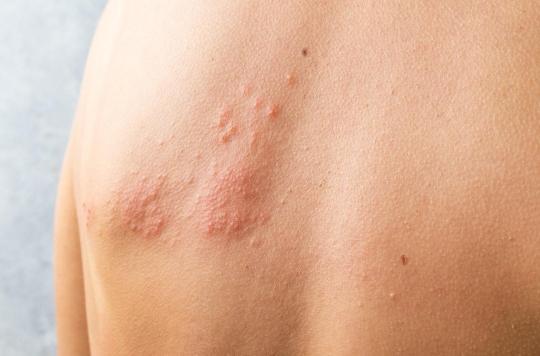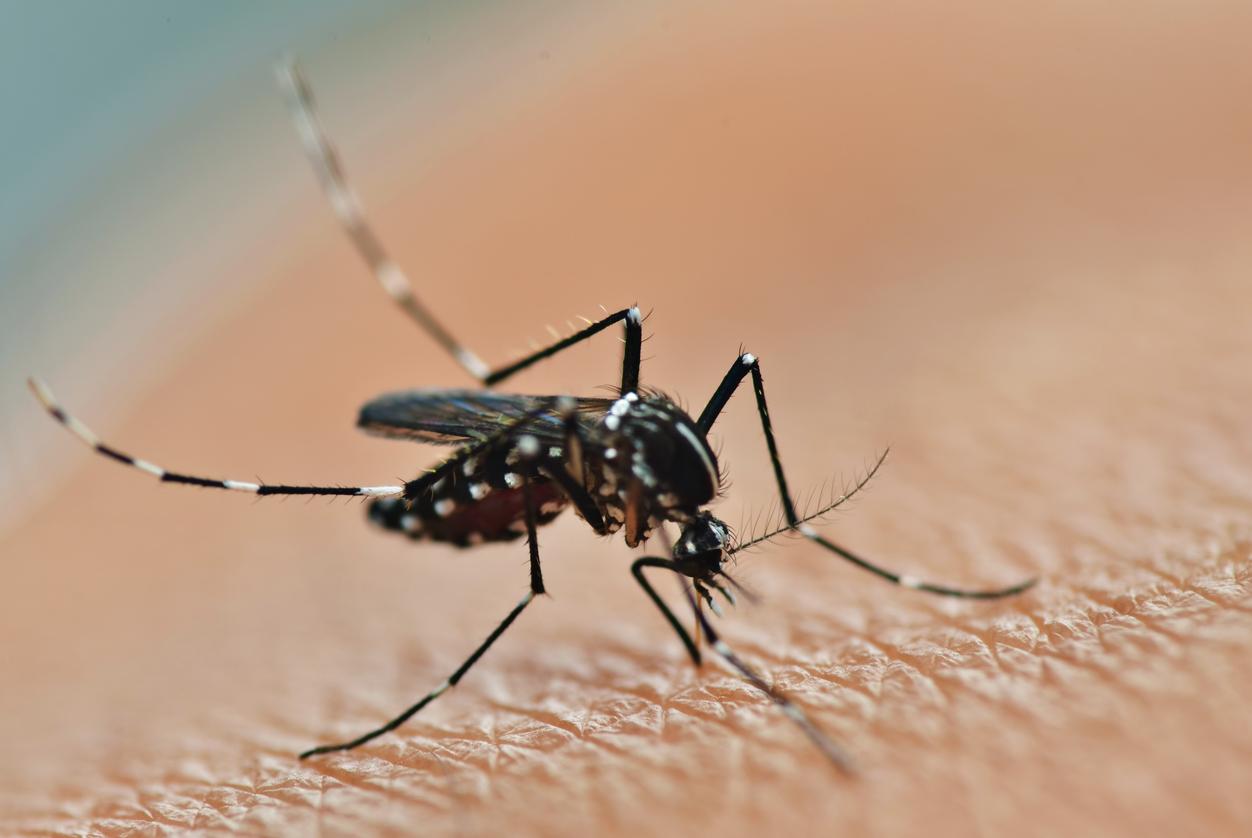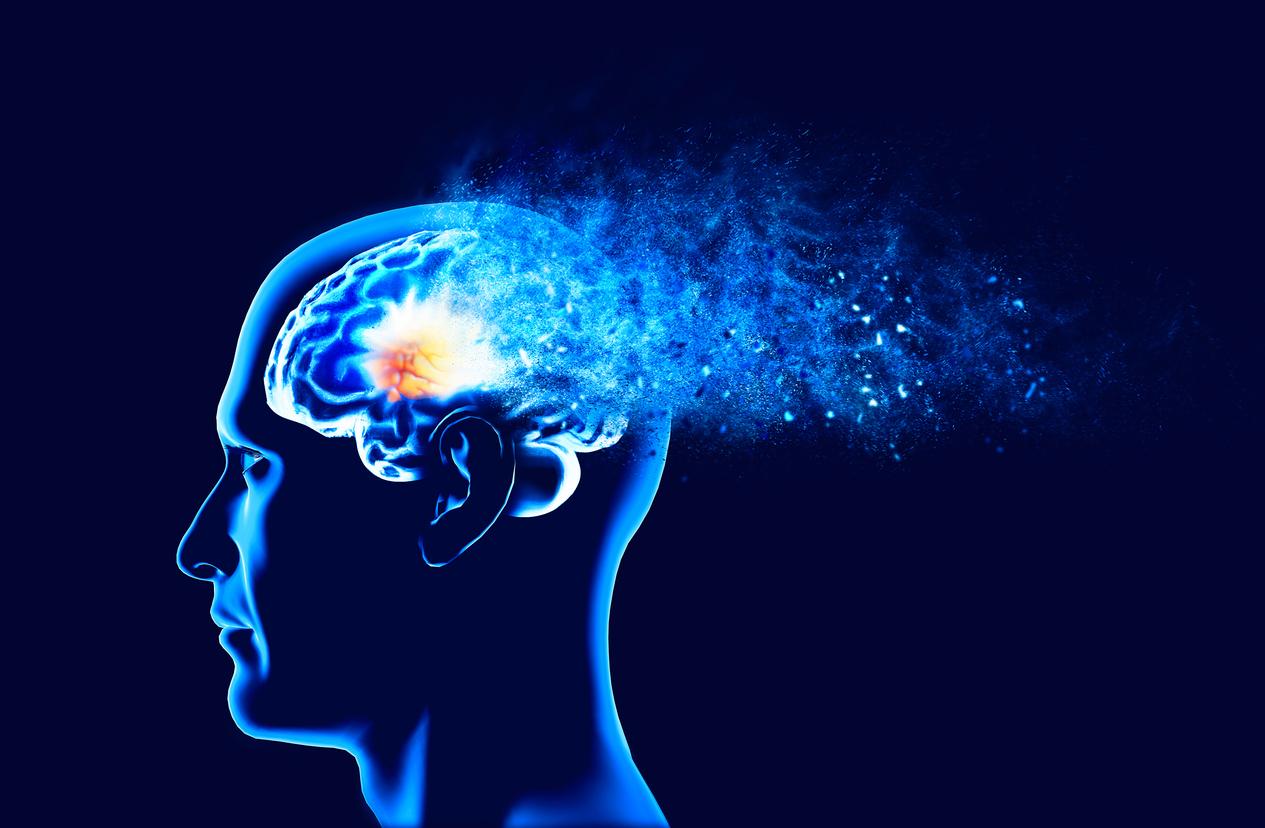What if the occurrence of shingles and another virus from the herpes family could trigger Alzheimer’s disease? That’s what new Anglo-American research suggests.

- Shingles, combined with a form of herpes, may act as a trigger for Alzheimer’s disease, study warns
- According to the World Health Organization, an estimated 3.7 billion people under the age of 50 have been infected with oral herpes
According to estimates by the World Health Organization, about 55.2 million people have Alzheimer’s disease. Linked to an abnormal accumulation of proteins in the brain, this neurodegenerative disease generally occurs after the age of 65. But all the causes are not yet known. American and English researchers may have identified a new one.
The latter developed a model made of small silk protein and collagen sponges (in the shape of a donut 6 millimeters wide) intended to mimic brain tissue and found that the varicella zoster virus (VZV) could activate HSV-1 herpes (most commonly manifested by cold sores in the mouth) and trigger the early stages of Alzheimer’s disease.
HSV-VZV combination increases Alzheimer’s risk
If the correlation link between increased risk of Alzheimer’s disease and the HSV virus has been established before (in particular by David Kaplan researcher at the University of Oxford and co-author of this study), the researchers nevertheless start from the postulate that ‘he “It is possible that other inflammatory events in the brain may also trigger HSV-1 and lead to Alzheimer’s disease.”
Before reaching these conclusions, the authors of the work were able to observe that while neurons can be infected by VZV, the virus alone is in principle not responsible for the formation of the tau and beta-amyloid proteins characteristic of VZV. Alzheimer’s. In contrast, if the neurons already harbor latent HSV-1, being exposed to VZV can lead to HSV reactivation and a dramatic increase in tau and beta-amyloid proteins.
A potential risk with Covid-19
“Our results are consistent with the suggestion that shingles causes reactivation of HSV1 in the brain and with the protective effects against Alzheimer’s disease of various vaccines, as well as with the decrease in cold sores reported after certain types of vaccination”conclude the researchers, who recall that a vaccine against varicella and shingles considerably reduces the risk of dementia.
The researchers also draw attention to the long-term neurological effects of Covid-19, especially in elderly patients, since the VZV-HSV combination can be reactivated after infection with Covid. “In these specific cases, it would be good to keep an eye out for the cognitive effects and neurodegeneration that might ensue”say the latter.


















